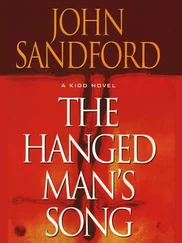“I’m also doing great,” English said. “I have a date tomorrow night with Leanna.”
Now a little puff of the shed self clouded Berryman’s eyes. “Wonderful.”
“She asked me. I stopped by her place, her big hotel there. She’s got her own apartment in the back. She sleeps on a water bed.”
“I don’t want you to confide in me, English. Pardon me,” he called to a waitress. “Apple pie and coffee for this pitiful person.”
“Nobody’s confiding in you. I didn’t get in the water bed.”
“Ask me about my new job, would you?”
“Okay,” English said. “What was your biggest story so far?”
“‘Tree Falls in Road.’”
“Far out,” English said. “Do go on.”
“Never mind,” Berryman said. He told the waitress as she set down English’s pie and coffee: “My friend here is paying for himself.”
“Why didn’t you tell me about Leanna? Has she got it made, or what? Stereo, big color TV, water bed—”
“I’m of a generation that doesn’t talk about these things.”
“Listen—”
“It’s unbecoming. How old are you?”
“Listen—”
“It makes my skin crawl. You’re too old—”
“Listen: she’s got a hot tub. A sixteen-room hotel with a hot tub out back, and no guests. It’s the off-season.”
“How old are you, English?”
“Old enough. I’m not a virgin. But I think Leanna is.”
In Berryman’s face the attentiveness, which had been draining away, stopped dead. “You’re unbelievable,” he told English. “You’re crazy.” He laughed, a rare thing.
“Point me out somebody who’s sane around here.”
“You’ve got no brakes, the cliffs are waiting—”
“This is just how I commonly do it. I just go ahead. It won’t kill me.”
“Not every time,” Berryman said.
English was angered by this voice of reason, but the feeling quickly failed and a damp gloom came down around him in this buzzing restaurant where he felt himself among Germans, strangers, grownups. “It’s on you, because I’m broke,” he told the reporter, and got up to leave. Struck by a thought, he leaned over the table. “I was wondering,” he said. “What’s this Truth Infantry thing all about?”
“The who, now?”
“The Truth Infantry. You know.”
“I never heard of it.” Berryman’s face changed and brightened, and he hoisted his chin to greet some new arrivals.
“You lush,” English said.
“Only on weekends.” Berryman’s attention was elsewhere. English shouldered past customers waiting for seats and got to the street.
English was on his way to the bank because he needed cash for his date with Leanna. It was all her idea, she’d been the one to do the asking, and it wasn’t right, somehow.
Everything seemed to be reversing itself like that, a woman asking him out, most others ignoring him while the men seemed to look him over, this strange hush at evening, as if it were dawn, and even the buildings seemed to be going in the wrong direction, this small old bank on a shop-lined and window-crowded street by the sea, for instance: every building around here seemed to be receding into the historic past. The wooden floorboards English crossed as he entered the bank must have been two centuries old, but the ceiling was given over to the idea of a contemporary St. Valentine, with glittering silhouette hearts strung across the air and tinsel drooling down. There were candy hearts in plastic cups by the tellers’ windows. “Can I have a heart?” English asked, and at the same time the young lady asked him, “Is it cold out?” “What?” they asked each other. “What?”
“You talk first,” he said.
“What can I do for you today?” she said.
“I’d like a candy heart, and I’d like one of those counter check things, because I lost my checkbook.”
“Oh, you lost it. Have you reported it lost?”
“It isn’t really lost,” English said. “It’s just missing. It has to be in my room someplace.”
“Well,” she said, kidding around, “then it isn’t missing, is it?”
“It must be, if I can’t find it,” English said.
She laughed, and started punching out a check on her machine. “What’s the name on the account?”
“Don’t trust this man. Would you sit beside this man on a bus?”
He turned around toward the voice. “Leanna.”
“I saw you from the street.” She reached past him and lifted a couple of treats from the cup. “Let’s go to the movies in Hyannis.”
“I thought we were going tomorrow.”
“Let’s go tonight, too. Let’s go both nights.”
A signal he couldn’t read, something in the hesitation of her hands as she held a tiny sugar heart in the fingers of each and looked completely uncertain about herself for once, made him want to say yes. “I’m supposed to work, but I’ll make it quick.”
“Oh, are you working at the station tonight?”
“I have to talk to my boss about something. I don’t think it’ll take too long. I’ll pick you up at your place in about an hour.”
“Don’t eat,” she said. “Let’s have dinner. I’ll let you bullshit me all you want.”
English had been surprised to find himself in possession, after a single afternoon on the case, of Jerry Twinbrook’s mail — a letter, a bill, and a bank statement. As an interrogator he’d fallen short, getting nothing in the way of names and numbers. Mrs. Twinbrook had wanted to talk only about paintings, mentioning important figures and styles and periods as if they were things he found in the papers every day. She’d seemed as anxious to locate her son in the history of art as she was to find him in time and space. “Maybe I should go back and talk with the father,” English suggested to Ray Sands. “The father seemed a little more down-to-earth.”
“Don’t worry about it,” Sands said. “It’s typical. There’s never any information from the people who suddenly can’t find a family member. Nothing in the way of hard facts, in any event. If they don’t have documents, they don’t have anything.” He laid his head back against his stack of pillows. He was dressed in pajamas now, he was pale, there were medicines on the nightstand and a flat dark outside the bedroom windows, in which hovered the reflection of his bedside lamp. “Families communicate a lot less than they think they do,” he said.
English stood nervously in the room, went over and closed the curtains without asking. “This one’s from an art gallery,” he said, handing Sands the envelopes one at a time. “Here’s a bill from Blue Cross. And this looks like a bank statement.”
“That’s the one that tells the tale.” Sands opened the bank statement first.
English crossed his hands behind his back and waited, curious to find out how much Jerry Twinbrook made and how much he spent.
But Sands wasn’t interested in those numbers. “New England Telephone,” he read as he lifted one of Twinbrook’s checks up to the light. “Take it.” He flipped through others. “A tavern; a tavern”—he held each check close to his face—“same tavern, Walker’s Inn; Hammond Office Supply.” He turned this last check over. “That’s in Marshfield. So are these taverns,” he said, consulting the backs of those checks.
English looked at the payment to the phone people: seventy-two dollars. “Where’s Marshfield?”
“It’s between Boston and the Cape, on the Bay.” Sands flipped through more checks. “Phil-Hack Realty, also in Marshfield. This man’s bank and his house are in Orleans, but his life seems to take place in Marshfield.” He turned the check over again. “Dated January 3.” He handed it to English. “Now, nothing is certain, but if you told me you guessed that to be some sort of monthly payment, I’d have to agree.”
Читать дальше












